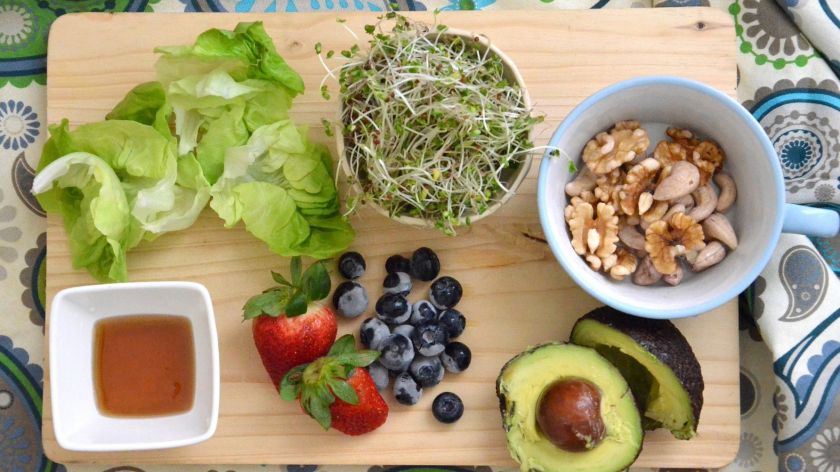The nonsense of superfoods: ‘It is always about the diet as a whole’
-
 Beeld: Pixabay
Beeld: Pixabay
‘Kaniwa is the new quinoa’ or 'Swiss chard is the new cabbage'. Every once in a while, a new 'superfood' pops up that is supposed to turn your body and mind healthy in an instant. Brain and nutrition researcher Alejandro Arias-Vasquez explains whether there is such a thing as a secret ingredient for health.
In January, health advices are all around you. They are not only tips for a better body, but also for a healthier mind. For example, researchers at the University of South Australia wrote late last year that eating walnuts combats exam stress.
‘It’s nonsense that carrots or quinoa will make you healthy’
Alejandro Arias-Vasquez, researcher in Psychiatry and Genetics at the Radboudumc, gets visibly tired looking at the data from that study. It is therefore not the first time he has taken time off to debunk claims like this. ‘I am not saying that good nutrition is not important for your health. I’m just saying that the claims surrounding it are often nonsense.’
In your opinion, there is no such thing as a superfood?

‘No. If someone claims that carrots or quinoa will make you healthy, that is nonsense. This is simply because the effect of one food, product or molecule on your health is very small. There are reliable studies that have shown that food can affect the way your brain functions, but we are far from knowing exactly how that works.’
‘This is partly because diet always works cumulatively. If you eat one greasy hamburger, it may well be that you don’t feel so good afterwards. That does not mean you will have a heart attack the day after.’
Your body’s functioning is affected by the diet as a whole. This includes not only what you eat, but also the way you eat. For example, subjects participating in nutrition studies have to eat in a very structured way, which can also have an impact on mental health. Perhaps being actively engaged in what you consume plays a role. We cannot exclude or single anything out in this as the most important factor.’
‘It’s appealing to believe you could eat away all your problems’
So why is it that claims about a magical effect of food products are so popular?
‘I think that is partly explained by the fact that we are so used to them. On the radio or on TV: everywhere you’ll come across tips and tricks to improve your health. Eventually you start to believe that something like this must exist. We always joke with our colleagues that the impact factor of the LINDA is 10,000, compared to the factor of 3 to 10 that highly rated scientific articles usually have. So maybe we should publish in it (laughs). Furthermore, of course, it is also appealing to believe that you could eat away all your future problems.’
What can you do if you want to be conscious about your health?
‘Of course you can reduce the risk of disease by living a healthy life. We also know that it is harmful to your body if you completely stop taking certain molecules, such as calcium or vitamin C. So as a vegan, it is definitely wise to take supplements to supplement certain molecules.’
‘Excluding vegans, nutrient deficiency only occurs in extreme situations. After all, everything you need can be found in lots of different products. For example, omega-3 is not only found in walnuts, but also in fish, margarine, brassicas and various leafy vegetables.’
‘Food supplements are therefore almost never necessary. Your body doesn’t store them for when things don’t go so well. A waste of your money, in other words. The rule of thumb is so simple that people almost don’t want to believe it: if you are healthy, you don’t need anything extra. Go home and be happy.‘
Translated by Jan Scholten



